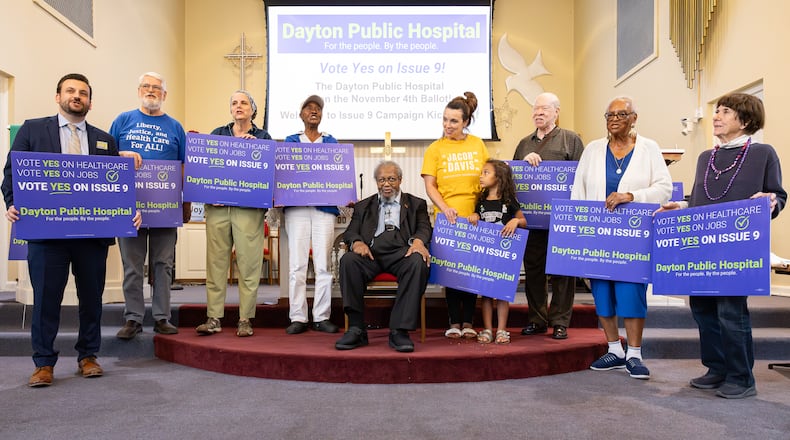Supporters say the measure will help bring a full-service hospital to a section of the city that has been a health care desert since the closure of Good Samaritan Hospital in 2018.
“This is the people’s vote — the people of the city of Dayton brought this about and they knew the need for a public hospital," said Nancy Kiehl, community outreach coordinator with the Clergy Community Coalition. “A public hospital is going to really bring some help and relief to the community.”
Critics have said say the levy will generate a tiny fraction of the funding needed to construct and operate a highly complicated and expensive medical facility. The auditor’s office said a one-mill levy would cost the owner of a $100,000 home about $35 per year.
The Clergy Community Coalition has worked for a couple of years to get a public hospital levy measure on the ballot in Dayton. After a couple of failed attempts, the coalition eventually obtained enough signatures from Dayton residents to put the measure before voters.
Coalition members have repeatedly decried Premier Health’s decision to close Good Sam hospital in northwest Dayton, and they claim the city can help fill that void.
Kiehl says the goal is to use the $2 million in levy revenue to leverage funding and commitments from other partners to move forward with a hospital project. She said capital and operating funds potentially could come from county, state, federal and private sources.
“We’ve got a blueprint with this ballot initiative,” Kiehl said. “This investment by the people of Dayton is going to bring others to the table — period. It just will."
Opponents claim a new hospital could cost hundreds of millions of dollars or more over decades of operation, and the city does not have the resources or capabilities to make the proposal work.
Dayton City Commissioners Chris Shaw and Matt Joseph say the levy proposal is irresponsible because the backers have no real plan to make the project succeed. Joseph said there is no chance this levy will lead to the opening of a new hospital.
Shenise Turner-Sloss, who was elected mayor on Tuesday, supported Issue 9.
About the Author

